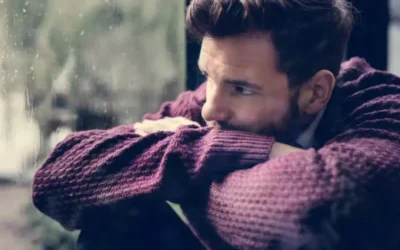This June, approximately 150 motorcycles will thunder down Route 9W in Saugerties, New York, for Ryan’s Ride for Recovery. Organized by Vince Kelder and his family, the barbecue and raffle will raise money to support their sober-living facility and honor their son who tragically died from a heroin overdose in 2015 after a years-long drug addiction. Research on how to address an existing porn addiction is lacking. What studies do exist have limitations, meaning it’s hard to draw conclusions about most effective treatments or how to cope. This article is for anyone wondering if their porn use is crossing the line into addiction and for anyone wondering if someone they care about is experiencing porn addiction. Read on to learn the signs, risk factors and causes, and where to find support for yourself or someone else.

Understanding Addiction to Support Recovery
These factors, known collectively as “recovery capital,” enhance an individual’s ability to function in his or her surroundings, reduce the risk of problematic substance use, and maximize quality of life. To complement the above definition, SAMHSA published 10 Guiding Principles of Recovery, two of which I’ll highlight here. While people seeking recovery tend to share certain common experiences and needs, every individual has particular capacities, coping abilities, resources, strengths, interests, goals, culture, and background. These influence and help to determine the most effective pathway(s) of recovery for each person. Recovery pathways can include mutual-aid groups; professional clinical treatment; strategic use of medications; support from families and friends, and faith-based resources, among other approaches.

Cope with drug cravings
Addictive behaviors have similar neurological and psychological processes and create rewarding feelings and sensations, so replacement addictive behaviors are common among those trying to overcome an addiction. Focusing on finding drug addiction recovery rewarding, healthy strategies that support your long-term recovery. DiClemente and Prochaska devised the Transtheoretical Model (TTM) to comprehensively elucidate the recovery process by delineating six distinct stages.
- The journey to recovery is highly individualized, with diverse paths tailored to unique circumstances.
- For people living with addictions, some of their relationships may revolve around addictive behaviors.
- For example, if you are hungry, you may choose to get a healthy snack that will not only satisfy your hunger but also give you energy to continue your day.
- Yet sustained, personalized recovery services are essential because treatment is just the first step toward growth and finding a high quality of life without substances.
- Motivational interviewing, aligned with the Stages of Change, acts as a skillful clinical style, motivating clients for behavioral changes that enhance well-being.
- Research on the science of addiction and the treatment of substance use disorders has led to the development of research-based methods that help people to stop using drugs and resume productive lives, also known as being in recovery.
Stages of Alcohol and Drug Rehab Recovery
Treatment and education can help adults learn techniques for handling urges and ways of accepting and managing negative emotions. Treatment and information aimed at adolescents can help them learn techniques for managing both positive and negative emotional states. People can learn to resist or outsmart the cravings until they become manageable. There are strategies of distraction and action people can learn to keep them from interrupting recovery. Another is to carefully plan days so that they are filled with healthy, absorbing activities that give little time for rumination to run wild.
Recovery Using the 12 Steps

History of the 12 Steps of Recovery.
Common medications used to treat drug addiction and withdrawal
- Research shows that when treating addictions to opioids (prescription pain relievers or drugs like heroin or fentanyl), medication should be the first line of treatment, usually combined with some form of behavioral therapy or counseling.
- Recovery from addiction is a developmental learning process, and people often stumble as they progress along a new and unfamiliar path.
- Relapse rates for drug use are similar to rates for other chronic medical illnesses.
- A robust support system plays a pivotal role in an individual’s journey towards recovery.